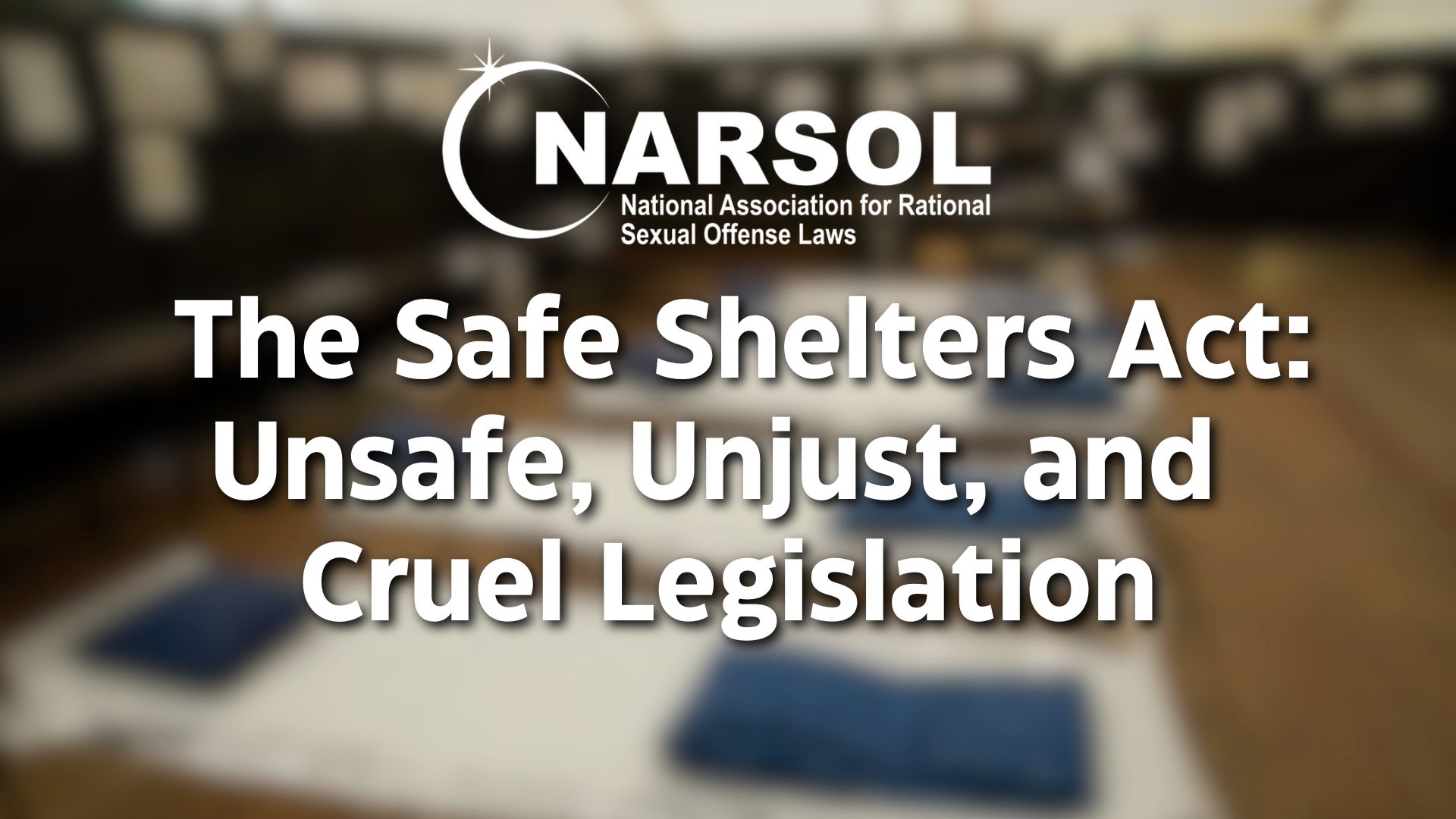Who bears the burden of proof in a criminal case?
By Larry . . . NARSOL is excited to announce the filing of an amicus brief in the United States Supreme Court in support of Stephen May’s Petition for a Writ of Certiorari. It is important to understand that the Supreme Court declines to hear most cases in which review is sought, which means all petitioners face very long odds. As a result of this reality, very few organizations dedicate resources to supporting such petitions. NARSOL recognizes that this issue is of great public importance and that a positive ruling from the Supreme Court would have nationwide impact.
The case is May v. Shinn; this is NARSOL’s brief. It focuses on Petitioner May’s third question presented: “Whether trial counsel’s failure to challenge the constitutionality of the Arizona child molestation statute was ineffective assistance of counsel warranting relief under the Sixth Amendment based on application of Strickland v. Washington, 466 U.S. 668 (1984).” This case is crucial and impacts so many for the simple reason that the state of Arizona has chosen to shift the burden, requiring the accused to disprove intent for the touching rather than requiring the prosecution to prove criminal intent.
In 2007, Stephen was convicted by a jury of child molestation for briefly touching children over their clothing in public and in full view of numerous adults and other children. Unfortunately, Stephen suffers from a neurological condition called ataxia which makes him appear odd and causes him to be clumsy. The most troubling aspect is that Arizona stands alone amongst the states in requiring a defendant accused of certain sexual crimes to prove their innocent intent for the touching rather than requiring the state to carry that burden of proving guilt.
Stephen, who has maintained his innocence from the beginning, has been fighting to reverse his conviction since 2007. In what can only be described as a tragedy, Stephen had woefully inadequate representation which only exacerbated the numerous errors in his case. As eloquently stated in our brief by Professor Sullivan, “NARSOL represents members of a particularly unpopular or hated group in American society who deserve effective representation by counsel in order to protect their right to due process of law, a right long recognized by this Court.”
After exhausting appellate review in the Arizona courts Stephen filed a habeas petition in the United States District Court for the District of Arizona, the Honorable Neil V. Wake presiding; Stephen May was granted relief based on trial counsel’s ineffective assistance. May v. Ryan, 245 F. Supp. 3d 1145 (D. Ariz. 2017). On appeal, the Ninth Circuit Court of Appeals initially sustained the grant of relief on an alternative ground asserted in May’s petition, but rejected by the District Court, 766 Fed. Appx. 505, 509 (9th Cir. 2019). On rehearing, the panel reversed its decision and denied relief on all claims. May v. Shinn, 954 F.3d 1194, 1208 (9th Cir. 2020). The Ninth Circuit relied on that single decision of an intermediate state court to rationalize that trial counsel’s failure to challenge the burden shifting statutory scheme was acceptable in terms of reasonable practice by defense counsel. It then deferred to the state post-conviction courts’ finding that counsel’s failure did not demonstrate deficient performance under Strickland to avoid consideration of the merits.
When all of the legal terms and court references are stripped away, this case is simple and extremely critical. For decades, as long as our nation and our Constitution have stood, when a person is accused of a crime, the state must prove he is guilty before a conviction can be had. The state of Arizona has shifted that burden, ignoring the Constitution, and in an unprecedented reversal is requiring the accused to prove he is innocent.
It is for all of these important reasons and more that NARSOL committed the resources necessary to help fight this important case. This is the second time NARSOL has filed an amicus brief in this decades old case. We are hopeful that the Supreme Court will recognize the significance of this case and grant review.


